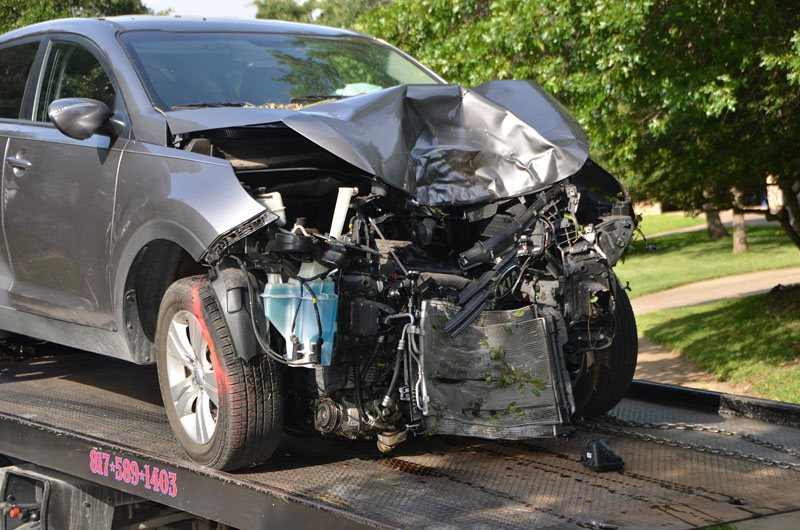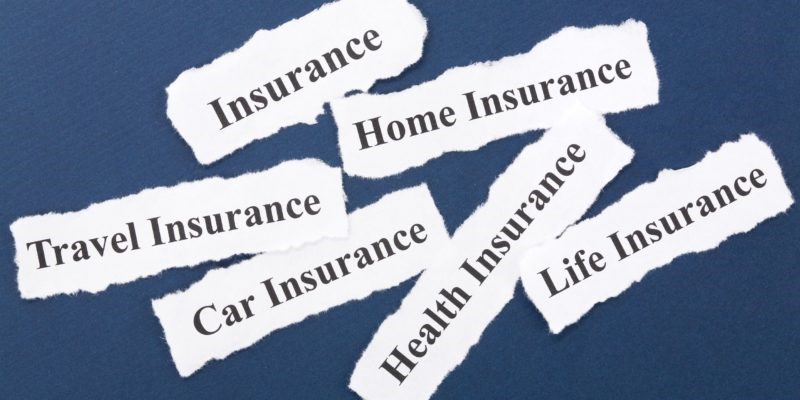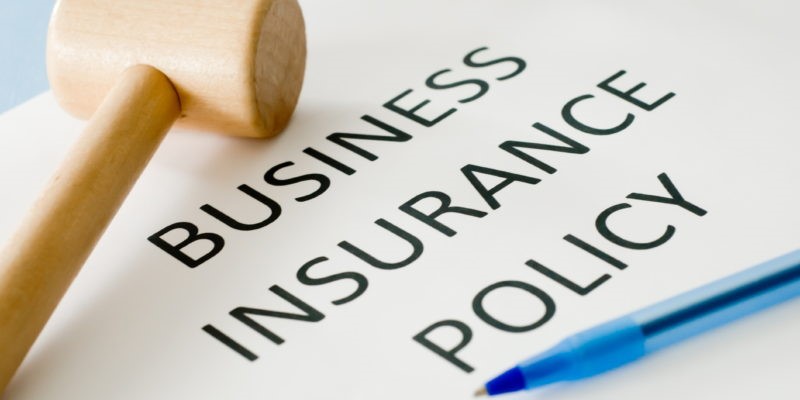

by insurance | Dec 22, 2018 | Life Insurance Quotes
Are you thinking about switching to a different auto insurance provider or need to insure a new vehicle? You should go over this article for some useful tips and tricks that will help you save on auto insurance.
Take a couple of weeks to do some research on different insurance providers. You need to find out for how long these companies have existed, how many customers have filed complaints against them and what kind of policies they offer. The ideal insurance provider should have an excellent reputation and if possible at least ten years of experience. Some insurance companies spend an large part of their profits on TV ads but keep in mind that it is often best to choose an insurance provider that uses profits to offer discounts to customers.
Compare different policies. Your policy should be adapted to your needs and correspond to the minimum legal amount of coverage required in your state. Since most states only require very small amounts of coverage, you should not hesitate to purchase a more comprehensive policy. It is in your best interest to spend a few additional dollars on your policy. You will be glad your purchased a good policy if something ever happens to your vehicle. If you cannot afford a comprehensive policy, put some money aside to cover expenses you will have to pay yourself and consider upgrading as soon as possible.
Ask for quotes from all the insurance providers you are interested in. If you ask for all your quotes within the same week, your credit score will not reflect these multiple inquiries. Do not share your personal contact information when asking for quotes. Make sure you compare quotes for similar amounts of coverage. The cheapest policy is not always your best choice. Do not hesitate spending a little more on your policy if you get access to an excellent customer service or will become eligible for more discounts in the future.
You should ask about discounts before purchasing your policy. Insurance companies will give you discounts if you have a good driving record or if you do not drive often. Some cars will be a lot cheaper to insure because they have safety features such as anti-lock brakes, which is a good thing to know if you are thinking about getting a new vehicle. You should also qualify for discounts if you are ready to take some driving lessons or if purchase more than one policy from the same company.
You can save on your insurance by choosing to increase your deductible. Put some money aside to cover your deductible and keep in mind that it is best to keep your deductible low if you are likely to file a claim. You can also avoid paying payment processing fees if you pay for premiums once a year rather than making smaller monthly payments. And if your car sustains minor damages, fix the problem yourself instead of filing a claim and causing your premiums to go up.
Use these tips to shop for auto insurance. Take all the time you need to compare your options and do not hesitate to ask friends for help.

by insurance | Dec 22, 2018 | Life Insurance Quotes
If you are new to researching automobile insurance policies, you may be shocked at the prices, as well as the options available. Insurance companies actually want you to be overwhelmed, so that you will just take their advice and purchase what is their own best interest – rather than in yours. Do not let this happen. Become a savvy, informed consumer yourself and pay lower prices because of it. Read some tips here on getting the best bang for your insurance buck.
The first and best thing you can do for yourself in order to get the lowest insurance prices is to research what is available. Never just go for the first or even second quote that you get, because prices can vary greatly between companies. Find out who offers policies in your area, then compare features, making sure to compare “apples to apples.” Make a list of exactly how much coverage you need for each policy benefit, then ask for quotes with the exact same figures with each insurance provider. For example, if you want $50,000 of liability coverage and $100,000 of collision, make sure each quote you get has those same benefits. Many companies will give you a “blanket quote” for full coverage, but the payouts may range considerably. Always ask.
Do comparisons yourself online, using calculators that let you change the coverage limits line-by-line and will reconfigure the rates with each change you make. You may be shocked to see how much you can save by altering coverage amounts from the pre-set amounts they start you out with. For example, you may not need $100,000 for liability, since most cars you could damage will not cost that much to repair. Check to see how much you could save by lowering the coverage to $50,000. Play around with deductible amounts, as well, until you come up with the rates you want to pay and the coverage you feel comfortable with.
Decide whether you are comfortable with a large online corporate company who does not have a local office near you. Some people want the assurance of knowing that they can walk into a local branch to get the personal service they desire. If, however, you are confident enough in your abilities to deal with services via phone, email and mail, then you can actually save a lot of money by using larger Internet companies. Weigh the pros and cons, then decide whether the cost savings are something that you feel confident enough to take advantage of. Always remember that a simple phone call to your state’s Insurance Commissioner or Attorney General’s office to lodge a complaint will help immensely to resolve disputes that may arise.
There are many considerations when finding a new auto insurance policy, but remember that it is in your power to obtain one that works for your needs. Be persistent and wise, using the tips you have learned here to be confident and safe while driving in your newly insured automobile.

by insurance | Dec 21, 2018 | Life Insurance Quotes
Having life insurance is essential especially if you have children and a family who are dependant on you. While it would be hard enough for them to come to terms with the death of their loved one, they would also have the added worry about how to cope financially.
A recent survey has however shown that a staggering third of all people who pay out for life insurance pay far too much for their premium. There are however many ways that you can save money on your life insurance premiums and one of the best ways to start making savings is to use a specialist broker.
While going online yourself and doing a little research you are able to make comparisons with many insurance providers, you will get a good idea of the sort of cover you want. You can then let the broker take it from there. This will lead you to getting the lowest premium and the best deal possible.
Another factor you should take into account if you have a partner or family is to check out if it might be possible for you to save money by covering all family members under one policy. This can sometimes work out much cheaper than buying separate cover for all of them.
While life insurance can be confusing, when you start looking around online for information it suddenly becomes much easier to understand.
Should you wish to find the insurance yourself, then there are some things that you should take into account when looking around online for the cheapest deal. For instance, if you have a pre-existing medical condition then it is essential that you be totally honest about this.
If you do have an existing condition and have already got life insurance then you could still save money on your premiums by switching, especially if the condition has improved since you last took out insurance.
The price you pay for the premium can also depend on your lifestyle, such things as giving up smoking and drinking can save you a lot on your premium, and it also helps that if you are overweight, you lose a few pounds.
If you currently have life insurance and are switching it then you will also have some things to consider before making the switch. You should always make sure that you don’t cancel the policy you have now until you make sure that the new one is in place fully, so that don’t leave yourself without any insurance.
Always make sure that you check what a policy covers you for, there are many exclusions within a policy and if you do have any existing medical conditions this might leave your loved ones unable to make a claim should it come to it.

by insurance | Dec 21, 2018 | Life Insurance Quotes
More and more people in the UK are buying life insurance online and the numbers seem to be doubling every two years. The reasons are clear. Prices are lower on the Internet and life insurance is fundamentally a simple insurance product.
Despite the underlying simplicity of life insurance, most web sites channel their online clients through a telephone based help and advice service manned by experienced personnel. They represent your safety net so if a little technical knowledge is called for, help is at hand.
But it’s always a good idea to have a few Top Tips in your back pocket when you’re shopping online for life insurance. They’ll help you ask the right questions and find the best policy.
1. Always have your Life Insurance policy “Written in Trust”.
This means that in the event of a claim, the money goes directly and immediately to the person(s) you nominate when you first take the policy out. It also avoids all possibility of your estate having to pay Inheritance Tax on the proceeds of your policy and that could represent a 40% tax saving !
All you have to do is tell the online brokerage organising your policy that you want your policy”Written in Trust” and the names of the people who the life insurance company pay in the event of a claim. They will then sort it all out for you. The extra good news is that this service is invariably free of charge. So it’s a win win situation and there aren’t many of those around these days !
2. In the early years a Reviewable Life Insurance Policy will be cheaper but a Guaranteed Policy will work out a better buy in the longer term.
With a “Guaranteed Policy” the insurance company guarantees never to increase your policy’s premium.
With a “Reviewable Policy” you agree that your insurance company can review the cost of your policy at regular intervals. But don’t be kidded ‘ in our experience a ‘review’ is just another word for a price increase. After all, who’s ever heard of an insurance company passing up a chance to charge you more! The review intervals are usually between 2 to 5 years but this does vary between insurance companies. You will find the details of the review intervals on the documents sent to you before you accept the insurance these are called The Key Features Documents.
So, comparing otherwise like for like policies, in the early years the premiums for a “Reviewable Policy” will undoubtedly be lower than the premiums for a “Guaranteed Policy”. Thereafter, the premiums for a Reviewable Policy increase eventually catching up with and overtaking, the premium for a “Guaranteed Policy”.
In our experience, you can expect the monthly premiums for a Reviewable Policy to exceed those of a Guaranteed policy in about 7 to 10 years and then within the following 10 years, more than double again. If your budget is currently tight then by all means choose a Reviewable Policy – after all your salary may increase in coming years and ease the strain. On the other hand, if the premiums for a Guaranteed Policy are affordable, we think they represent your best buy.
A footnote. Many insurance companies have stopped offering Guaranteed rates for standalone critical illness insurance policies. This because they have experienced much higher claim rates than they initially expected. However, you may still find a Guaranteed life insurance policy that also provides critical illness cover. As we have explained, Guaranteed rates are especially good value and if you can get a quote for a Guaranteed life policy that includes critical illness cover, you may have a real bargain.
3. Thinking about a Joint Life Insurance Policy?
A Joint Life Insurance policy is usually written on a first death basis. This means that the policy will pay out on the death of the first policyholder, subject to the policy being in force at the time. This leaves the second person uninsured and older. Older people can struggle to get life insurance at an affordable premium, so rather than a Joint Policy consider taking out separate policies now. Overall it will work out a little dearer – but you get twice the cover and double the peace of mind.
4. Taking out a Life Insurance Policy? Now would be an ideal time to include Critical Illness cover.
Are you likely to need Critical Illness Insurance in the future? Yes? Then consider adding it now to the life insurance policy you’re arranging. Why? There are three reasons.
Firstly, a Life Insurance policy combined with Critical Illness cover will work out significantly cheaper than buying two separate policies. Secondly, as we have already explained in the footnote to Tip 2, you may be able to buy a combined Life and Critical Illness policy with a guaranteed premium. That could be e real bargain. Finally, premiums for critical illness cover increase rapidly as you get older so the sooner you take it out, the cheaper it will be.
5. Don’t confuse Terminal Illness cover with Critical Illness cover.
There’s world of difference between Terminal Illness and Critical Illness cover so it’s important to understand the difference.
Terminal Illness cover pays out the insured lump sum if a Medical Doctor diagnoses you with an illness from which the Doctor expects you to die within 12 months. Most good life policies automatically include Terminal Illness cover at no extra cost. It’s basically an early, and welcome policy payout.
A Critical Illness policy pays out the insured lump sum if you are diagnosed with one of a wide range chronic illness and there is no life expectancy criteria. Indeed, with many of the insured illnesses you could expect to survive for many years. For example: certain cancers, heart disease, stroke, multiple sclerosis, loss of speech, sight or hearing, onset of Parkinsons or Alzheimers disease, third degree burns etc. Say you were an engineer aged 40 and you lost your sight. A Critical Illness policy would pay out immediately and that money could well be vital in helping you and your family through many difficult financial years ahead. If you just had Terminal Illness cover there’d be no chance of a payout.
So as you can see, Critical Illness cover is far more comprehensive than simple Terminal Illness cover and for that reason critical illness cover always costs you extra.

by insurance | Dec 21, 2018 | Life Insurance Quotes
Term life insurance is basically a “no frills” type of life insurance. It is a life insurance for a specified duration limit, or time. You buy a specific amount of coverage for a specific time period by signing a contract.
You pay for that coverage period and at the end of the term the policy expires. For example, the term might be until retirement, or until children are grown, or until college is paid for.
Term life insurance is the least expensive available insurance policy and allows you to spend a lot less and use the extra money in a better investment.
It does not build up cash value and the premium normally increases as the policy owner gets older. Usually term life insurance covers a specific term such as term of 1year, term of 20 years or term of 30 years.
If you die while the policy is active, term life insurance provides a stated benefit for it; and your survivors will be paid the agreed upon amount.
However, the policy does not provide any returns beyond the stated benefit and once the policy expires, the insurance coverage ceases and the insurance company keeps the money. Some term insurance policies give you the right to renew at the same rate for multiple years, while others do not. The former are generally a bit more expensive.
Term life insurance is most suitable for you, if you are:
- in need of coverage for a limited period of time,
- young and looking for lower premiums,
- buying a home or car, where the financial burden of a loan will disappear in time.
Term life insurance policies must be renewed when each term ends. Before buying a term life insurance policy, you should ask about the renewal provisions for the protection of your future insurability. There are some typical choices:
- Annual Renewable – the premium go up each year.
- Level Term – the premium stays the same for specific period like 5, 10, 15, or 20 years, then increases sharply.
- Automatic Renewable – you’ll have to pay more for this feature.
Some other options on term life insurance policies may include:
- Re-Entry – it requires a lower premium than an automatically renewable policy. You can renew at the same low rate offers to new customer; but you’ll have to pass a physical examination. If you’ve developed any health problems, your premium could go up and cost more than an
automatic-renewable policy. - Convertable term – you’ll have the option to convert to a whole life insurance policy in later years.

by insurance | Dec 21, 2018 | Life Insurance Quotes
Whole life insurance provides customers with a life insurance policy that will help their loved ones in the future, and with an investment component that will help customers and their families right away.
This mixture of delayed and instant gratification has been attractive to life insurance shoppers for decades, but today’s trend in life insurance is moving away from whole life insurance packages. Once, whole life insurance policies were the standard, but today they are the exception.
As the economy changes and the American public become increasingly savvy about money management, the full service that a whole life insurance policy provides just isn’t as necessary as it used to be.
People who want a more hands on approach to investing are likely to find a whole life insurance policy too limiting. And, the amount of money that one of these policies requires each month can make it difficult to pursue other investment options, especially for middle and lower class families who are living on a budget.
A lot of financial experts today feel the investment portions of whole life insurance policies do not offer customers the best return rate on their money. This provides an incentive for people to purchase term life insurance policies which do not include any investment components, and then invest their money elsewhere.
However, there are still some advantages to purchasing a whole life insurance policy. Although the investments that an insurance company will make on your behalf may not be the most lucrative, they will almost certainly be among the most stable.
Many people prefer a lower rate of return with a lower chance of loss rather than a riskier gamble. There is plenty to be said in favor of this perspective, especially when it comes to planning for the future.
In addition, people who do not have the discipline or inclination to save money on their own often find the structured saving a whole life insurance policy requires to be a boon.
If the idea of budgeting your own savings plans and spending time researching hot stock tips appeals to you, a whole life insurance policy probably won’t be to your personal taste. Of course, even if you don’t opt for this tried and true kind of policy, you can be certain that someone else will.
Although today’s trends seem to foretell the end of the whole life insurance policy, there are still enough customers interested in this kind of traditional and conservative policy that insurance companies will be likely to offer this kind of coverage for many years to come.ShareTweet






